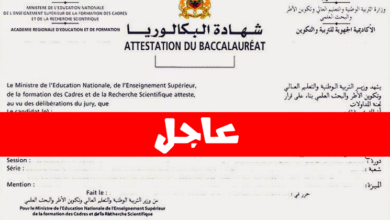
ALLER is one of the three most commonly used French verbs. Its meaning is simple – to go – but its value is that you can use it in the present tense to create a sense of something you are going to do in the future, so it’s invaluable to you. It is far more irregular as a verb in French than in English but it’s well worth the effort to learn it carefully, especially the present tense forms.
In this article, you’re going to learn about some of the more common uses of ALLER, and there is a short quiz at the end to help you remember some of the key parts and uses of the verb.

Uses of ALLER
The verb aller is highly irregular, so it doesn’t follow a particular pattern when you conjugate it. It doesn’t even always start with an ‘A’ so you might not recognise some of the different tense forms of the verb straightaway. It is one of only a few verbs with a future tense stem that does not come from its infinitive form
ALLER is used in three different ways.
-
1
In its most simple sense, it means ‘to go’ and it’s the most commonly used verb of motion in French. It is used in many phrases that relate to your social or routine activities, such as: Je vais au bureau (I go to the office) and Nous allons au cinéma (We’re going to the cinema).
-
2
It is used to make statements or to ask questions about the status or condition of things. Example: Comment vas-tu? (How are you?), and Il va bien (He’s fine).
-
3
And it is an important auxiliary verb to create the compound future tense (a more simple form of the future tense with the meaning ‘going to’ rather than ‘will’. Example: Il va faire chaud demain (It’s going to be warm tomorrow).
Click on this link to see some of the more common uses of Aller.
Conjugation of ALLER
As you now know, this is an irregular verb and some of its forms seem a little complicated. Keep repeating the verb and listening to the audio, and you’ll learn it in no time though.
Let’s review the conjugation of ALLER in the indicative mood. Aller conjugation examples below:

How to conjugate ALLER in the present tense (Présent)
In English, there are two present tenses – the Present Simple and the Present Continuous. In French, there’s only one tense – Le Présent. French is easy, right?
In the present tense table below, you can see the two different meanings in English.
| Je vais | I go, I am going |
| Tu vas | You go, you are going |
| Il / elle va | He / she goes, he / she is going |
| Nous allons | We go, we are going |
| Vous allez | You go, you are going |
| Ils / elles vont | They go, they are going |
How to conjugate ALLER in the Imparfait
The imperfect is used to create a sense of something that continued happening in the past. In English we would say ‘I was doing something’ or that ‘I used to do it’.
| J’allais | I was going |
| Tu allais | You were going |
| Il / elle allait | He / she was going |
| Nous allions | We were going |
| Vous alliez | You were going |
| Ils / elles allaient | They were going |
How to conjugate ALLER in the Futur
There are two things to remember here:
-
1
This is one of only a few verbs with a future tense stem that does not come from its infinitive form.
-
2
The Simple Future (which we’re not covering specifically) uses ALLER in the present tense along with the infinitive of the verb which is telling us the action being carried out to convey a meaning of ‘going to…’. Example: Je vais travailler ce soir (I’m going to work this evening).
| J’irai | I will go |
| Tu iras | You will go |
| Il / elle ira | He / she will go |
| Nous irons | We will go |
| Vous irez | You will go |
| Ils / elles iront | They will go |
How to conjugate ALLER in the Passé Composé
ALLER is one of only a few verbs to be conjugated with Être in the compound past tenses. This makes it slightly more difficult to learn and use but there is still a pattern to it. Most of the time you can’t hear the different endings of the past participle but the differences are important in writing nonetheless.
| Je suis allé(e) | I went |
| Tu es allé(e) | You went |
| Il est allé | He went |
| Elle est allée | She went |
| Nous sommes allé(e)s | We went |
| Vous êtes allé(e)(s) | You went |
| Ils sont allés | They went |
| Elles sont allées | They went |
You may have worked out that the additional ‘e’ tells us the subject is feminine, and the ‘s’ tells us the subject is plural.
How to conjugate ALLER in the Passé Simple
| J’allai | I went |
| Tu allas | You went |
| Il / elle alla | He / she went |
| Nous allâmes | We went |
| Vous allâtes | You went |
| Ils / elles allèrent | They went |
How to conjugate ALLER in the Plus-que-Parfait
| J’étais allé(e) | I had gone |
| Tu étais allé(e) | You had gone |
| Il était allé | He had gone |
| Elle était allée | She had gone |
| Nous étions allé(e)s | We had gone |
| Vous étiez allé(e)(s) | You had gone |
| Ils étaient allés | They had gone |
| Elles étaient allées | They had gone |
How to conjugate ALLER in the Passé Antérieur
| Je fus allé(e) | I had gone |
| Tu fus allé(e) | You had gone |
| Il fut allé | He had gone |
| Elle fut allée | She had gone |
| Nous fûmes allé(e)s | We had gone |
| Vous fûtes allé(e)(s) | You had gone |
| Ils furent allés | They had gone |
| Elles furent allées | They had gone |
How to conjugate ALLER in the Futur Antérieur
| Je serai allé(e) | I will have gone |
| Tu seras allé(e) | You will have gone |
| Il sera allé | He will have gone |
| Elle sera allée | She will have gone |
| Nous serons allé(e)s | We will have gone |
| Vous serez allé(e)(s) | You will have gone |
| Ils seront allés | They will have gone |
| Elles seront allées | They will have gone |
How to conjugate ALLER in the Subjunctive mood (Subjonctif)
How to conjugate aller in Present Subjunctive (Subjonctif Présent)
| que j’aille | that I go |
| que tu ailles | that you go |
| qu’il / elle aille | that he / she goes |
| que nous allions | that we go |
| que vous alliez | that you go |
| qu’ils / elles aillent | that they go |
How to conjugate aller in Imperfect Subjunctive (Subjonctif Imparfait)
| que j’allasse | that I was going |
| que tu allasses | that you were going |
| qu’il / elle allât | that he / she was going |
| que nous allassions | that we were going |
| que vous allassiez | that you were going |
| qu’ils / elles allassent | that they were going |
How to conjugate aller in Past Subjunctive (Subjonctif Passé)
| que je sois allé(e) | that I went |
| que tu sois allé(e) | that you went |
| qu’il soit allé | that he went |
| qu’ elle soit allée | that she went |
| que nous soyons allé(e)s | that we went |
| que vous soyez allé(e)(s) | that you went |
| qu’ils soient allés | that they went |
| qu’elles soient allées | that they went |
How to conjugate Aller in Past Perfect Subjunctive (Plus-que-Parfait)
| que je fusse allé(e) | that I had gone |
| que tu fusses allé(e) | that you had gone |
| qu’il fût allé | that he had gone |
| qu’elle fût allée | that she had gone |
| que nous fussions allé(e)s | that we had gone |
| que vous fussiez allé(e)(s) | that you had gone |
| qu’ils fussent allés | that they had gone |
| qu’elles fussent allées | that they had gone |
How to conjugate ALLER in the Conditional Mood (Conditionnel)
Aller Conditionnel tables below:
How to conjugate aller in the Present Conditional (Conditionnel Présent)
| J’irais | I would go |
| Tu irais | You would go |
| Il / elle irait | He / she would go |
| Nous irions | We would go |
| Vous iriez | You would go |
| Ils / elles iraient | They would go |
How to conjugate aller in the Past Conditional (Conditionnel Passé)
| Je serais allé(e) | I would have gone |
| Tu serais allé(e) | You would have gone |
| Il serait allé | He would have gone |
| Elle serait allée | She would have gone |
| Nous serions allé(e)s | We would have gone |
| Vous seriez allé(e)(s) | You would have gone |
| Ils seraient allés | They would have gone |
| Elles seraient allées | They would have gone |
How to conjugate aller in Participe
| Présent | allant |
| Passé | allé(e)(s) |
| Passé Composé | etant allé(e)(s) |
How to conjugate ALLER in the Imperative Mood (Impératif)
| Présent | (tu) vas (nous) allons (vous) allez |
| Passé | (tu) sois allé(e) (nous) soyons allé(e)s (vous) soyez allé(e)(s) |
How to conjugate ALLER in the Infinitive Mood (Infinitif)
| Présent | aller |
| Passé | être aller |
Quick Exercise – fill in the blanks
1. Je _____ chez le dentiste.
ANSWER: Je vais chez le dentiste.
2. Nous _____ à la plage chaque weekend.
ANSWER: Nous allons à la plage chaque weekend
3. Comment _______ – vous?
ANSWER: Comment allez-vous?
4. Le vin blanc ______ bien avec le poulet..
ANSWER: Le vin blanc va bien avec le poulet.
5. S’il fait beau, j’______ en ville demain.
ANSWER: S’il fait beau, j’irai en ville demain.
6. Il faut que j’______ à la messe dimanche matin.
ANSWER: Il faut que j’aille à la messe dimanche matin.
7. _______ plus lentement, les enfants.
ANSWER: Allez plus lentement, les enfants
8. Ils sont _____ à l’étranger l’an dernier.
ANSWER: Ils sont _____ à l’étranger l’an dernier.
Conclusion
As one of the top three most commonly used verbs in French, you really do need to learn ALLER conjugation thoroughly. It will reap huge rewards when you do. And even though this is one of the most irregular verb forms, it is true that the more verbs you learn, the more you’ll see patterns that help you easily memorize even highly irregular verbs like ALLER.
If you thought learning verbs meant learning by rote and chanting your way through them, you’re mistaken. You can easily and naturally get them set in your memory if you use the audio drills every day.
Still Stuck at Intermediate French?

Break through the plateau with our proven coaching and study method.




